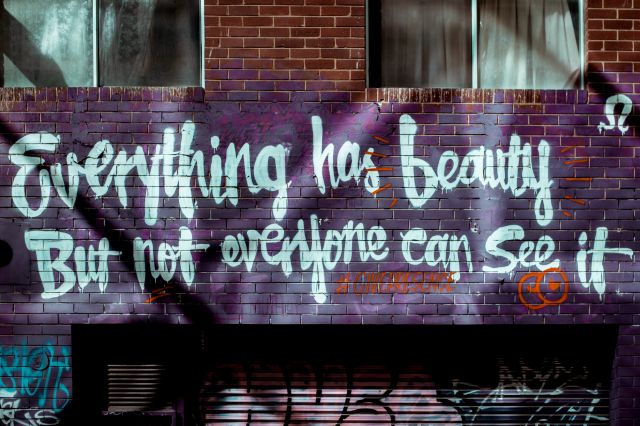We come into this world wailing, distressed. Our needs, which at that point are few and basic, must be met for us to be content and quiet. Unfortunately, for many, the sense of unfulfillment and anguish stays for a lifetime. It’s our nature to always want more, to compare ourselves, and find flaws in our otherwise pretty good, if not great, lives. We could have everything we ever wanted—good health, a stable job, et al, and still be unhappy.
Mental health issues aside, it’s often sheer unwillingness to value what we have that causes us so much pain. While cultivating a positive mindset could put an end to most of our worries and is thus really crucial, it’s easier said than done. It’s a skill that must be honed over time, say some really happy people I know. And being grateful, for things big and small, is a good place to start.
I have a friend who is the most charming and cheerful person I know. I can say without an iota of doubt that there isn’t anyone who has anything bad to say about her. I’ve never heard her utter an unkind word. For as long as I’ve known her, and it’s perhaps been over a decade, she’s been gracious, always willing to help others, and ready with a compliment or a word of encouragement when needed.
I’m not exaggerating when I say she radiates warmth and positivity. And she makes it all look so easy. But she recently confessed that it doesn’t come naturally to her. Her first thoughts, about people and situations, are vicious. It’s a conscious effort to look beyond what annoys her and dig out the good bits that she chooses to focus on. The result: She is much happier and isn’t bogged down by unnecessary, petty things.
Also read: Many ways we mourn
This mindset, she said, stems from the extreme gratitude she feels for all the good things that happen in her life. So many things could’ve gone wrong but they haven’t very often. And even when they sometimes have, as bad things invariably do, focusing on positive things has helped her overcome them without going into panic-mode. However, it’s natural for negative thoughts to creep in, making it difficult to be grateful. That is where a conscious effort to shift your focus comes handy.
Robert Emmons, world’s leading scientific expert on gratitude and author of the bestselling book ‘Thanks!: How Practicing Gratitude Can Make You Happier’, says “gratitude is an affirmation of goodness. We affirm that there are good things in the world, gifts and benefits we’ve received. We recognize that the sources of this goodness are outside of ourselves.” Gratitude isn’t about ignoring the hassles and problems in life. But a grateful outlook helps you take things as a whole, and no particular experience as an isolated one, designed to torment you. You are better able to identify the good things in your life, despite your circumstances.
Emmons, who has been studying the effects of gratitude on physical health, psychological well-being, and our relationships, says being grateful makes you more likely to take better care of yourself. A friend recently had some health issues. The doctor ran some tests and said her heart looked just fine. She says she saw her heart beat and felt an overwhelming sense of gratitude. Up until then she hadn’t paid much attention to her eating habits and didn’t exercise at all. She now goes on walks, cycles when she can, and tries to eat well. Thankful to what she considers her good luck, she’s determined to be healthier and happier.

Apparently, it helps if you write down things for which you are grateful. In a series of studies, Emmons and his colleagues have helped over a thousand people, from the ages eight to 80, cultivate gratitude by maintaining a gratitude journal. People who practice gratitude consistently were found to be forgiving, compassionate, and were less likely to feel lonely. They also had stronger immune systems, lower blood pressure, and slept well. On the psychological side, grateful people had higher levels of positive emotions and were optimistic and happy.
At a risk of embarrassing myself, I must confess that, for the longest time, I was the stubborn sort, grumpy unless things went exactly the way I wanted them to. My mother once jokingly said that I take after my father’s side of the family—a delight to be around only when everything is hunky-dory. But I believe that is true for most of us (though in my case the obstinate trait is largely genetic). Most of us aren’t able to handle criticism or that sometimes we could be wrong too. It’s difficult, impossible even, to own up to your mistakes, say sorry, and move on. We value ourselves and nurse our egos far too much to ever back down.
This ‘I-deserve-the-best’ mindset makes us defensive, easily hurt, and worse, wallow in self-pity. It took a couple of major health scares in my family, several years ago, for me to value life and the people in it, to come to the stark realization that perhaps many issues aren’t as important as we make them out to be. It was only then that I started being so much more grateful for all that I had and that has quite drastically upped the quality of my life.
I’m a lot less stressed and it’s easier for me to let go of things I can’t control than ever before. Being grateful—for those books I was able to buy, that delicious rice pudding my mother made, the time I was able to spend in the company of my loved ones, and being alive for another day—helps me deal with the inevitable hiccups with a ‘this-too-shall-pass’ approach. Life’s far from perfect but I’m the happiest I’ve ever been.











